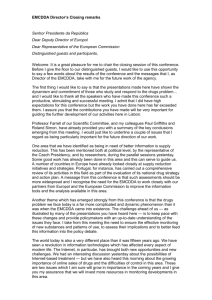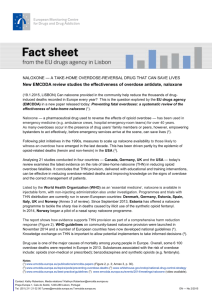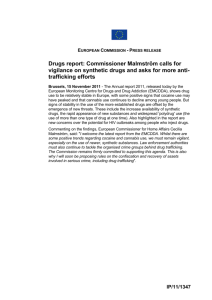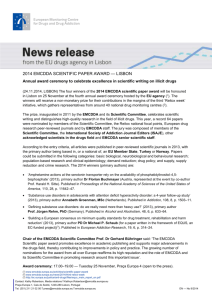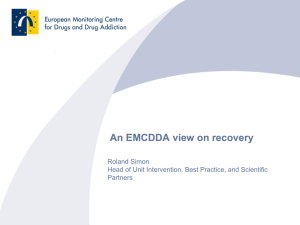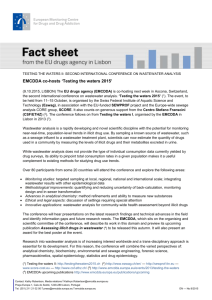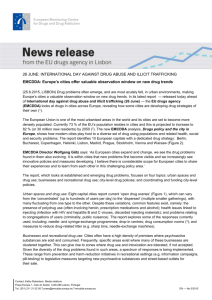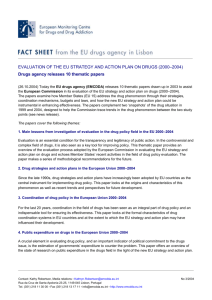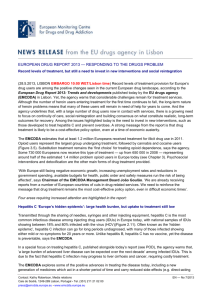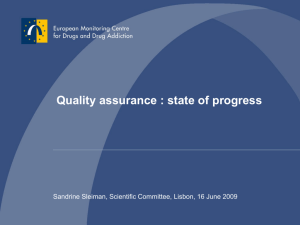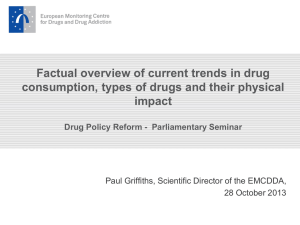Two EMCDDA expert meetings, dedicated to the agency`s drug
advertisement
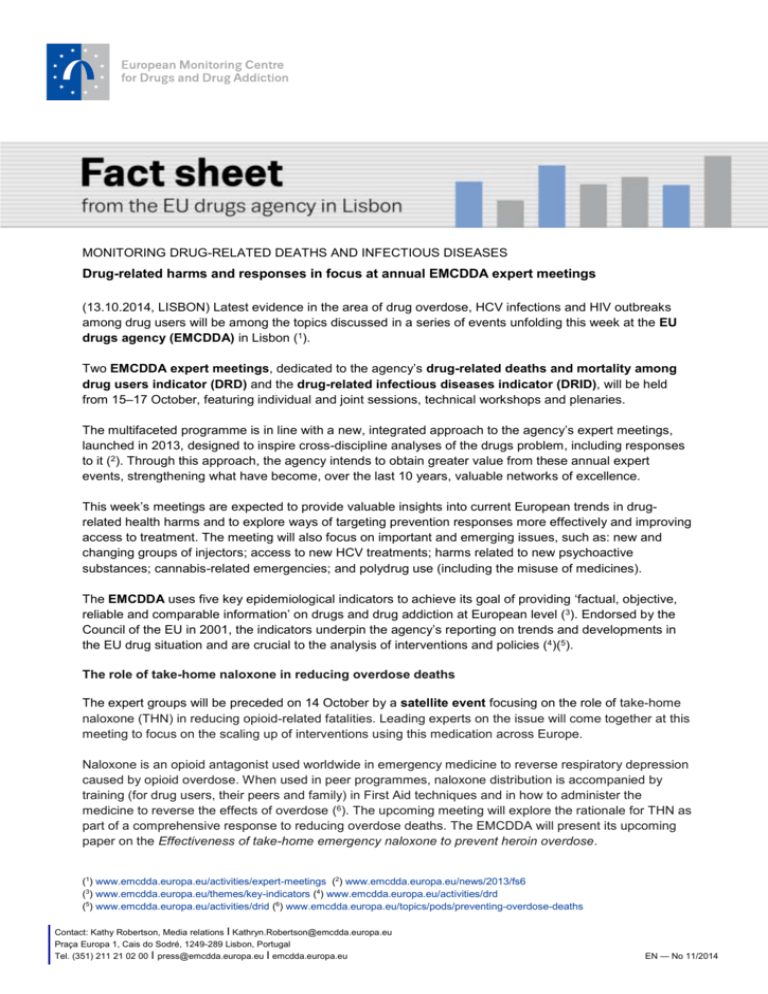
MONITORING DRUG-RELATED DEATHS AND INFECTIOUS DISEASES Drug-related harms and responses in focus at annual EMCDDA expert meetings (13.10.2014, LISBON) Latest evidence in the area of drug overdose, HCV infections and HIV outbreaks among drug users will be among the topics discussed in a series of events unfolding this week at the EU drugs agency (EMCDDA) in Lisbon (1). Two EMCDDA expert meetings, dedicated to the agency’s drug-related deaths and mortality among drug users indicator (DRD) and the drug-related infectious diseases indicator (DRID), will be held from 15–17 October, featuring individual and joint sessions, technical workshops and plenaries. The multifaceted programme is in line with a new, integrated approach to the agency’s expert meetings, launched in 2013, designed to inspire cross-discipline analyses of the drugs problem, including responses to it (2). Through this approach, the agency intends to obtain greater value from these annual expert events, strengthening what have become, over the last 10 years, valuable networks of excellence. This week’s meetings are expected to provide valuable insights into current European trends in drugrelated health harms and to explore ways of targeting prevention responses more effectively and improving access to treatment. The meeting will also focus on important and emerging issues, such as: new and changing groups of injectors; access to new HCV treatments; harms related to new psychoactive substances; cannabis-related emergencies; and polydrug use (including the misuse of medicines). The EMCDDA uses five key epidemiological indicators to achieve its goal of providing ‘factual, objective, reliable and comparable information’ on drugs and drug addiction at European level (3). Endorsed by the Council of the EU in 2001, the indicators underpin the agency’s reporting on trends and developments in the EU drug situation and are crucial to the analysis of interventions and policies (4)(5). The role of take-home naloxone in reducing overdose deaths The expert groups will be preceded on 14 October by a satellite event focusing on the role of take-home naloxone (THN) in reducing opioid-related fatalities. Leading experts on the issue will come together at this meeting to focus on the scaling up of interventions using this medication across Europe. Naloxone is an opioid antagonist used worldwide in emergency medicine to reverse respiratory depression caused by opioid overdose. When used in peer programmes, naloxone distribution is accompanied by training (for drug users, their peers and family) in First Aid techniques and in how to administer the medicine to reverse the effects of overdose (6). The upcoming meeting will explore the rationale for THN as part of a comprehensive response to reducing overdose deaths. The EMCDDA will present its upcoming paper on the Effectiveness of take-home emergency naloxone to prevent heroin overdose. (1) www.emcdda.europa.eu/activities/expert-meetings (2) www.emcdda.europa.eu/news/2013/fs6 (3) www.emcdda.europa.eu/themes/key-indicators (4) www.emcdda.europa.eu/activities/drd (5) www.emcdda.europa.eu/activities/drid (6) www.emcdda.europa.eu/topics/pods/preventing-overdose-deaths Contact: Kathy Robertson, Media relations I Kathryn.Robertson@emcdda.europa.eu Praça Europa 1, Cais do Sodré, 1249-289 Lisbon, Portugal Tel. (351) 211 21 02 00 I press@emcdda.europa.eu I emcdda.europa.eu EN — No 11/2014
